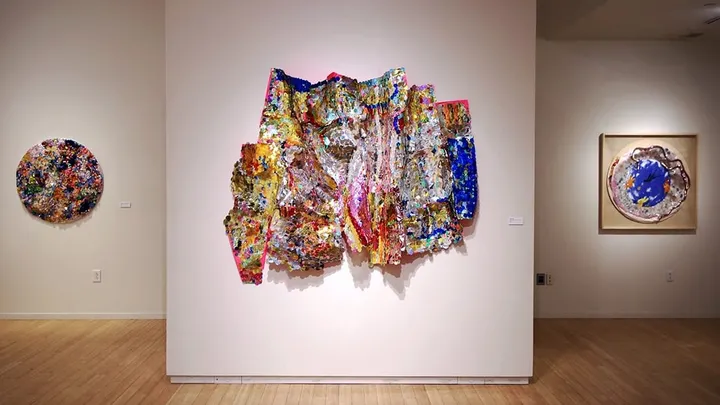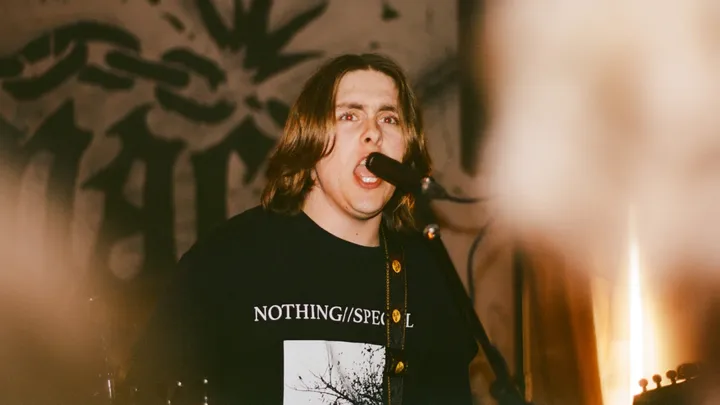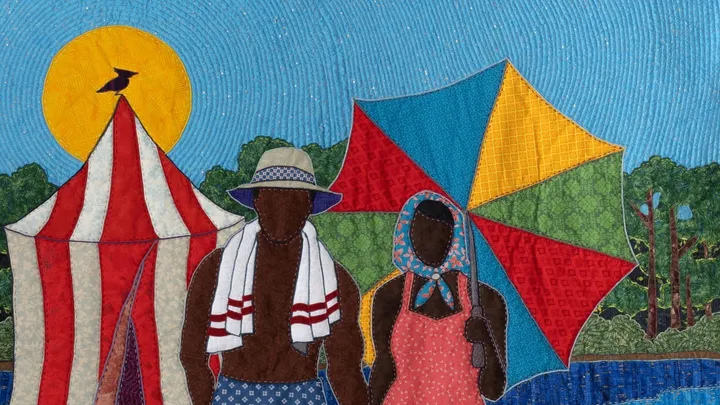‘Flood’ examines evangelical family dynamics — and Kansas fossil hunters
Katy Scoggin’s tremendous documentary is a prescription for our divisive age. The Tallgrass Film Festival audience award-winner is available to stream through October 28.
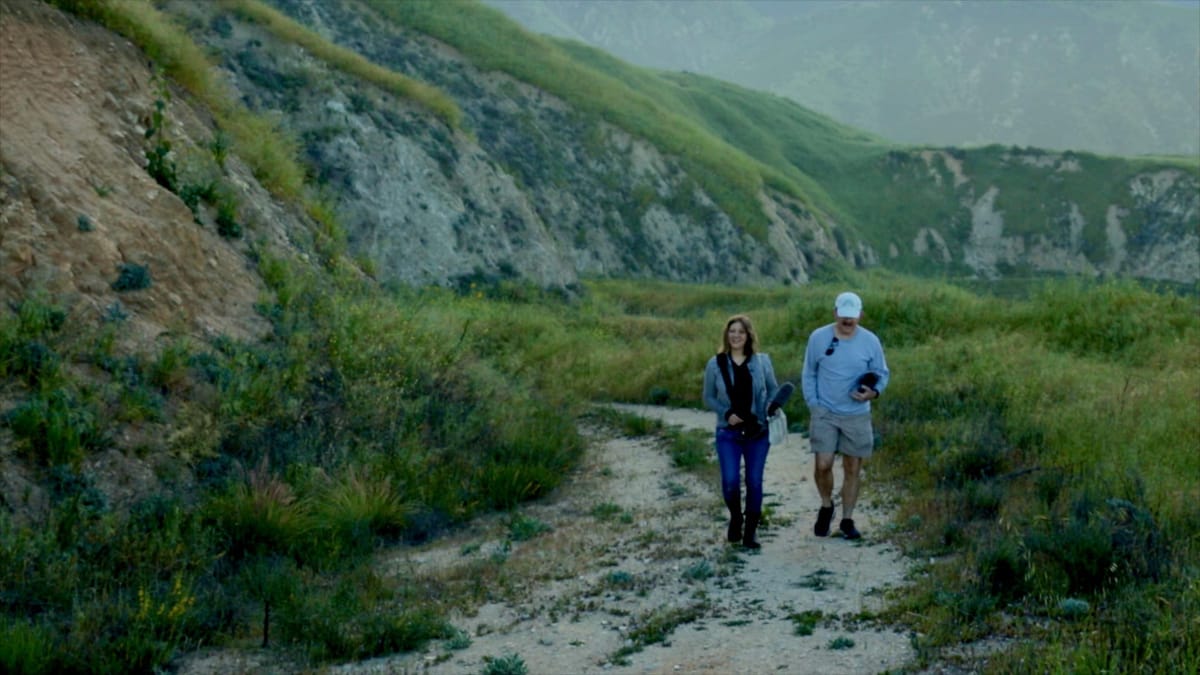
Evangelical Christianity is nothing if not black-and-white. You can’t be halfway saved, after all.
Most on-screen portrayals of evangelicalism share that all-or-nothing quality. They’re gauzily devotional or bitterly satirical, utterly devoid of fully human characters.
Not so “Flood,” Katy Scoggin's docu-memoir about her relationship with her father Marvin, a “professional Christian” and young-Earth creationist who believes the Biblical flood created the fossil record. Whose filmmaker daughter abandoned her faith after taking a human evolution class in college, a shift she compares to the coming out that followed it.
“It blew my mind wide open,” Scoggin says in voiceover. “I woke up with one set of beliefs, and I went to bed one night with a world-crumbling realization: The flood could never have happened.”
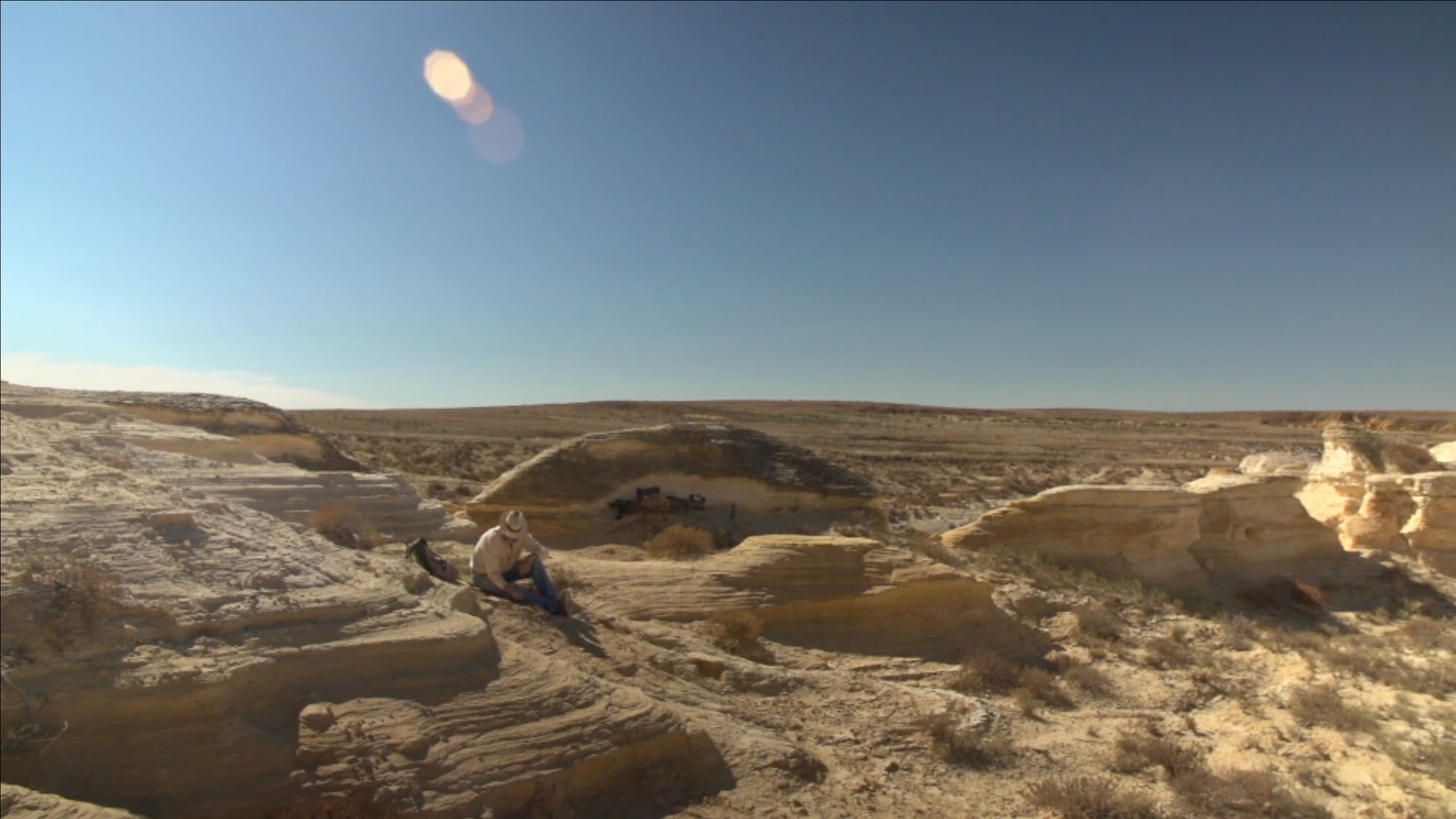
At the beginning of the film, Scoggin and her father aren’t speaking. Enter fossil hunters of the Niobrara Chalk in western Kansas. They’re mostly men around her father’s age, nerdy like her father, but with an opposite understanding about the history of our planet.
“I can see things more clearly when I’m filming them,” Scoggin narrates. “I’m trying to wrap my mind around geologic time.”
Once covered by ocean, the area near Scott City is rich in souvenirs from the Cretaceous period. With her camera, Scoggin captures the dramatic landscape born of 35 million years under water.
Our free email newsletter is like having a friend who always knows what's happening
Get the scoop on Wichita’s arts & culture scene: events, news, artist opportunities, and more. Free, weekly & worth your while.
No spam. Unsubscribe anytime.
Through the course of helping her family negotiate a cross-country move, the filmmaker makes multiple Kansas side quests, and she and her father negotiate a tentative, if fractious, relationship with the encouragement of her fossil-hunter friends.
“He has his own side of the story, too, and we both know he’s wrong. But you need to interview him,” Tom says.
“And you should tell him you love him.”
In phone calls from Kansas with mom Peggy, who’s now “kind of on the fence about the flood,” Scoggin shares her discoveries. “I want her on my team,” she narrates. “I want her to believe me.”
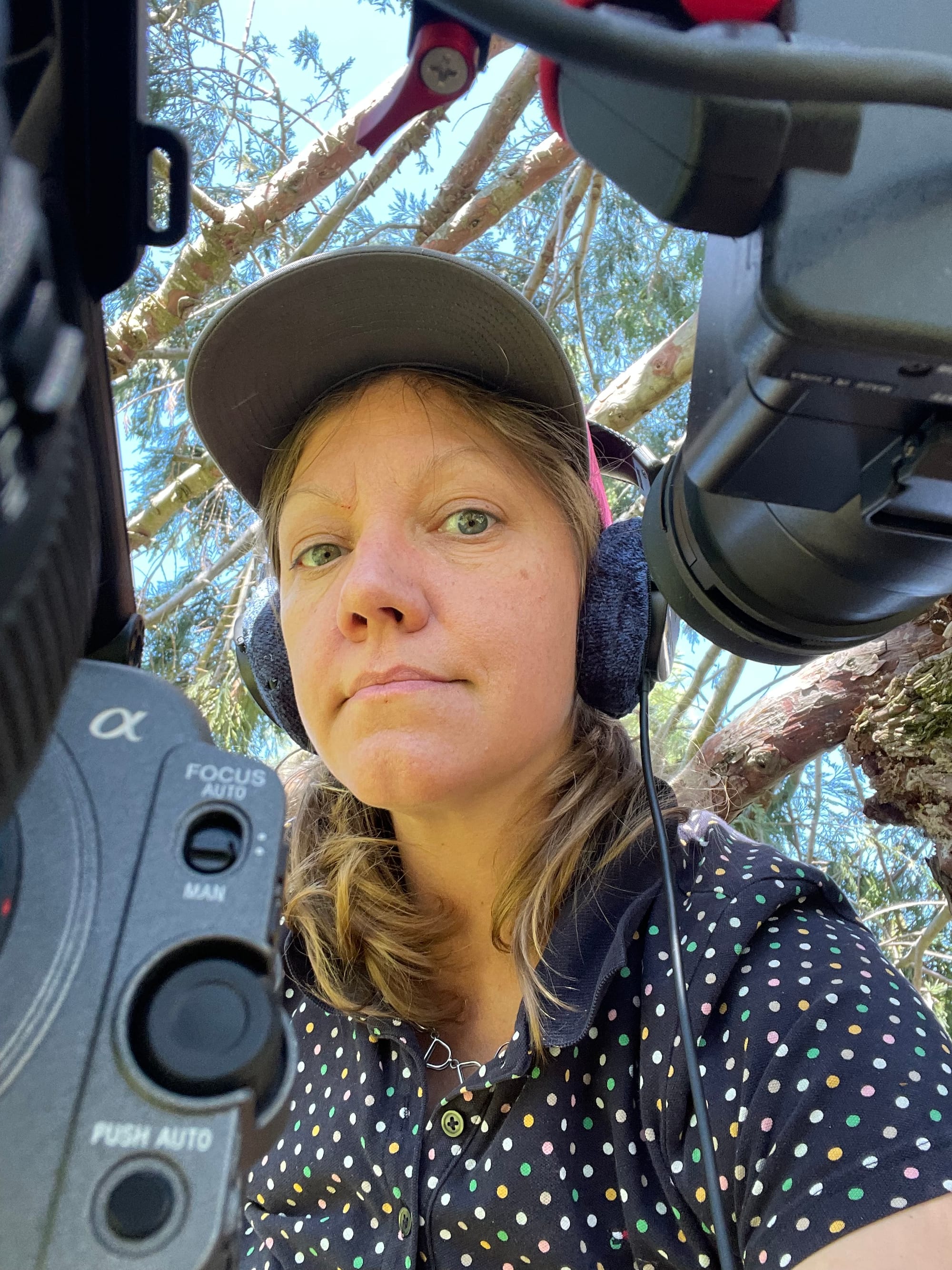
Most of the action takes place in California’s Inland Empire, where Scoggin grew up in a house overlooking the now-abandoned campus of Campus Crusade for Christ, the Christian youth organization that brought her parents together.
The film is chock full of evangelical miscellanea, including clips from televangelist sermons and footage of Campus Crusade for Christ rallies. At one point the camera pans over a selection of the Scoggins’ literature, including James Dobson’s book “Parenting the Strong-Willed Child,” — quite the jump scare for this formerly strong-willed child.
“Flood” begins with childhood camcorder footage taken on a day when the family discovered an enormous caterpillar, and the narrative is interleaved with footage from the Scoggin family archive. Some of the contemporary footage, which dates back 10 years, shares both the same offhand quality and the pull to understand the world by using a lens.
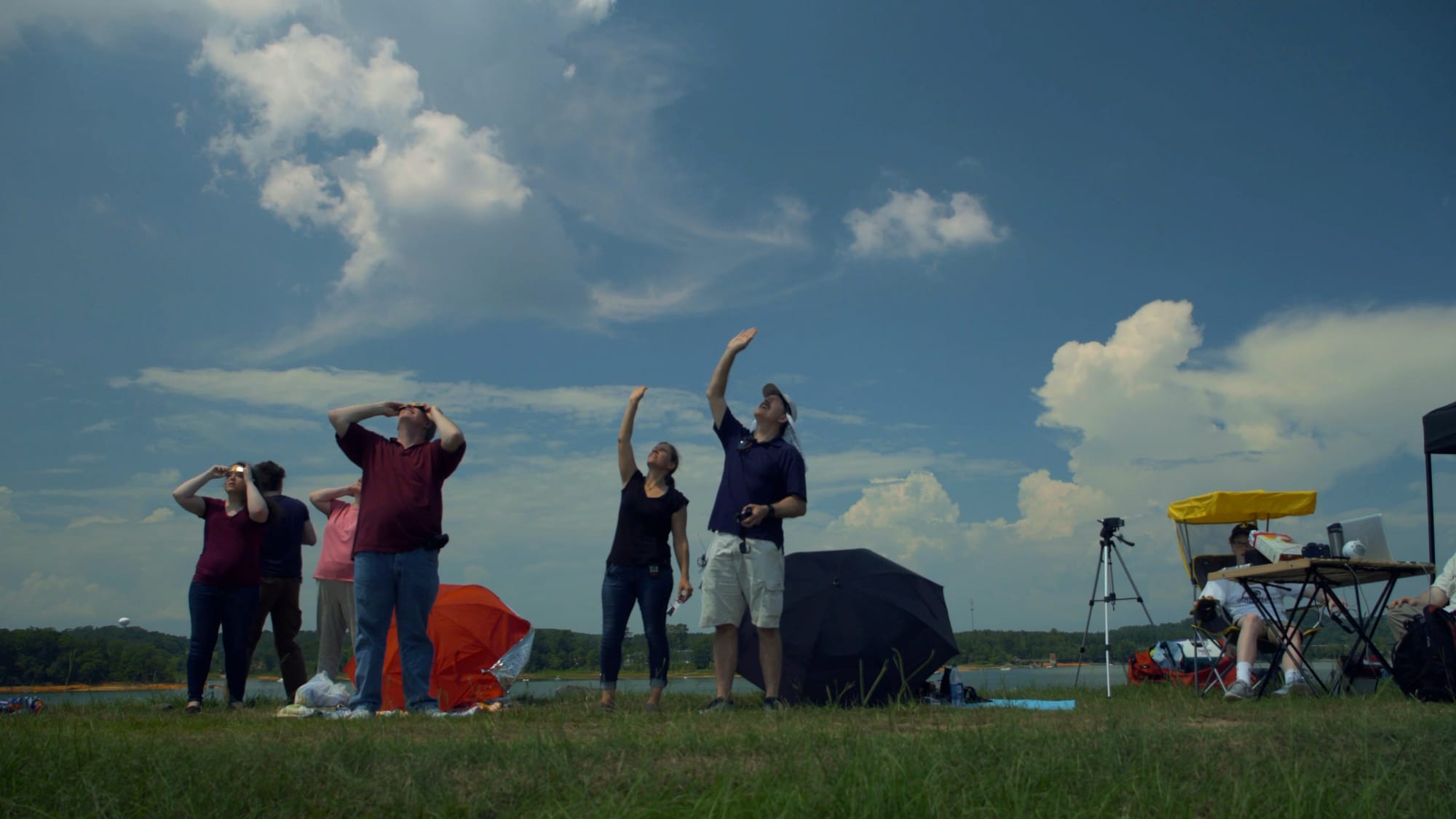
In a Q&A after the Saturday morning screening at Boulevard Theatres Old Town, Scoggin talked about how one of the film’s editors, David Cohen, helped her see the structure amid all the hours of audio and video.
“It took a lot of picking up the phone — I spent a year recording phone calls — before I turned my camera on,” Scoggin wrote in an email. “For that reason, one significant post-production challenge was wrangling three years of audio and image capture (plus home video and other archival) into a film-shaped timeline.”
She pulls off the trick in a tight 75 minutes with the additional help of producer and story producer Will Lennon and consulting editor Rabab Haj Yahya. “Flood” is an improbably cohesive work. Its primary narrative ends with a father-daughter cross-country journey, pulling a rental truck from San Bernadino California, to the parents’ new home in Charlottesville, Virginia. It feels like the conclusion of an upheaval just as dramatic and life-altering as Noah’s flood, and the pair have the kind of conversations you have when you’ve been driving side-by-side over a very long distance. (“You don’t dig, you just walk,” one of the fossil hunters explains earlier in the film.)
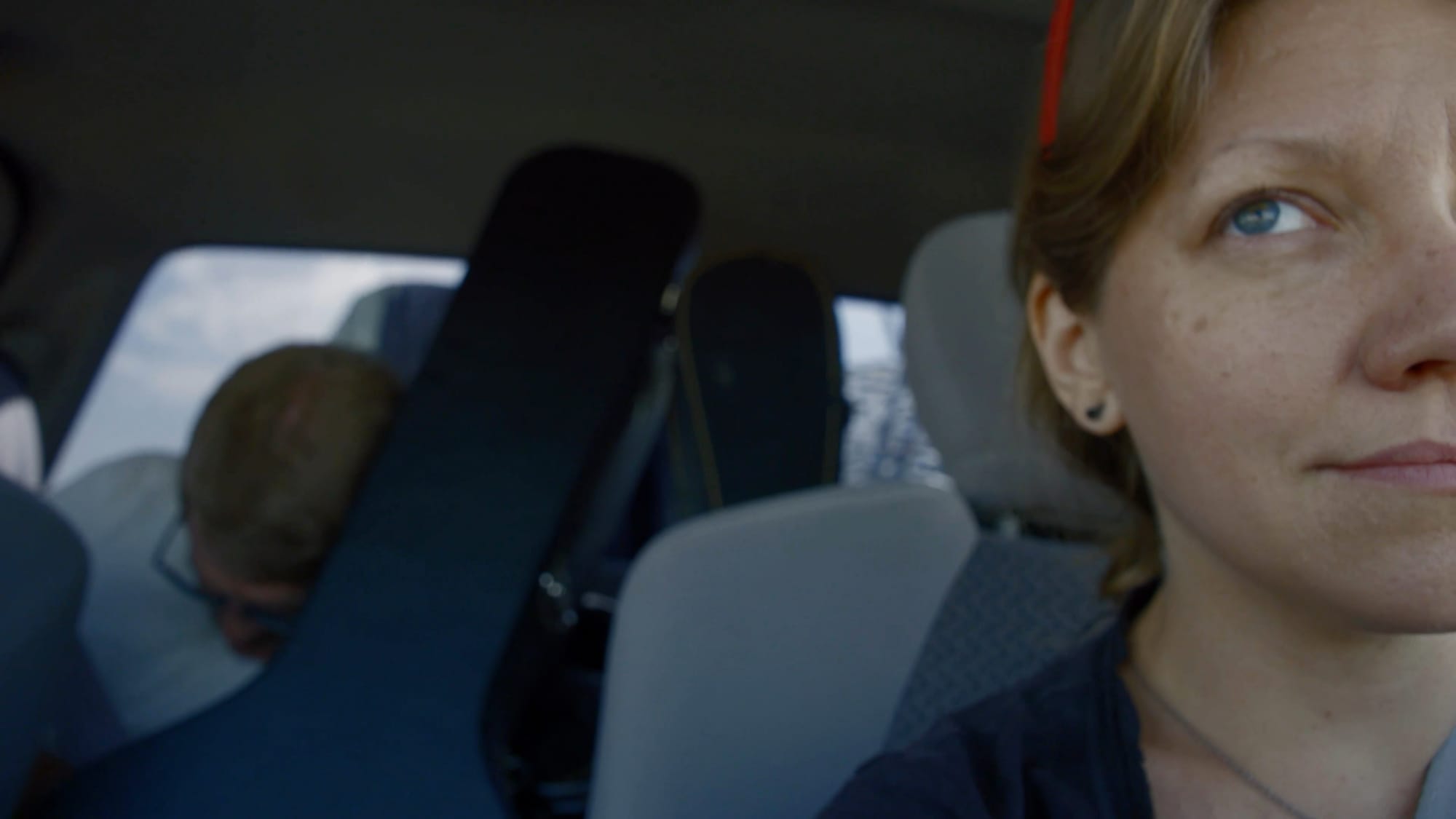
It’s certainly possible to watch “Flood” and feel total disdain for Marvin, who believes his daughter will suffer in eternity if she doesn’t share his religious beliefs. But through her careful work, Scoggin invites us to also view her father in his best light: nerdy and tender with his elementary-aged science students, teaching his grandson guitar in another clip from the archive.
“You know, people evolve,” says Peggy, one of my favorites of the film’s many singular characters.
“You think so?” her daughter asks. “You think Dad could evolve?”
“When hell freezes over,” Peggy counters. “But you can still talk.”
"You can still talk": Those four words double as a pragmatic assessment and a challenge — one the filmmaker accepted.
“The filmmaking process allowed me to cut through politics and ideology,” Scoggin said during a Q&A after her film premiered.
Thanks to her effort, we have "Flood," an open-hearted, generous portrait that pulls no punches.
The Details
“Flood”
Screening online October 21-28 during the virtual portrion of the 23rd annual Tallgrass Film Festival
“Flood” had its world premiere at Tallgrass on October 16. Some of the Kansas fossil hunters portrayed in the film were in attendance, including Chuck and Barb, proprietors of Keystone Gallery in Scott City, Kansas.
The documentary tied for the audience award in the Kansas film category at the Wichita film fest.
Watch it online for $7.99 through October 28. It will premiere on PBS on January 5, 2026.
Read our other Tallgrass coverage:
- The Harmon sisters are back with a new documentary about the golden age of shopping
- Salina director's short film is a personal take on the fentanyl crisis
- 'An Autumn Summer' captures the fierceness of adolescent friendship & romantic love
- Horror mockumentary 'Taffy: A Divine Instrument Against the Demonic Forces of Evil' brings the jokes
Emily Christensen is a freelance journalist and one of the co-founders of The SHOUT. She is a past fellow of the National Critics Institute at the Eugene O'Neill Theater Center and a recipient of an Arts Writing Grant from The Andy Warhol Foundation.
❋ Derby man has the kind of voice that turns heads — and chairs
❋ Socializing while sober: how some Wichitans are cultivating alcohol-free communities
❋ As a small creative business closes, the owner mourns
❋ Painting through it: Autumn Noire on 20 years of making art
❋ How a guy from Wichita resurrected 'Dawn of the Dead'
❋ Bygone Friends University museum housed curious collections
Support Kansas arts writing
The SHOUT is a Wichita-based independent newsroom focused on artists living and working in Kansas. We're partly supported by the generosity of our readers, and every dollar we receive goes directly into the pocket of a contributing writer, editor, or photographer. Click here to support our work with a tax-deductible donation.

